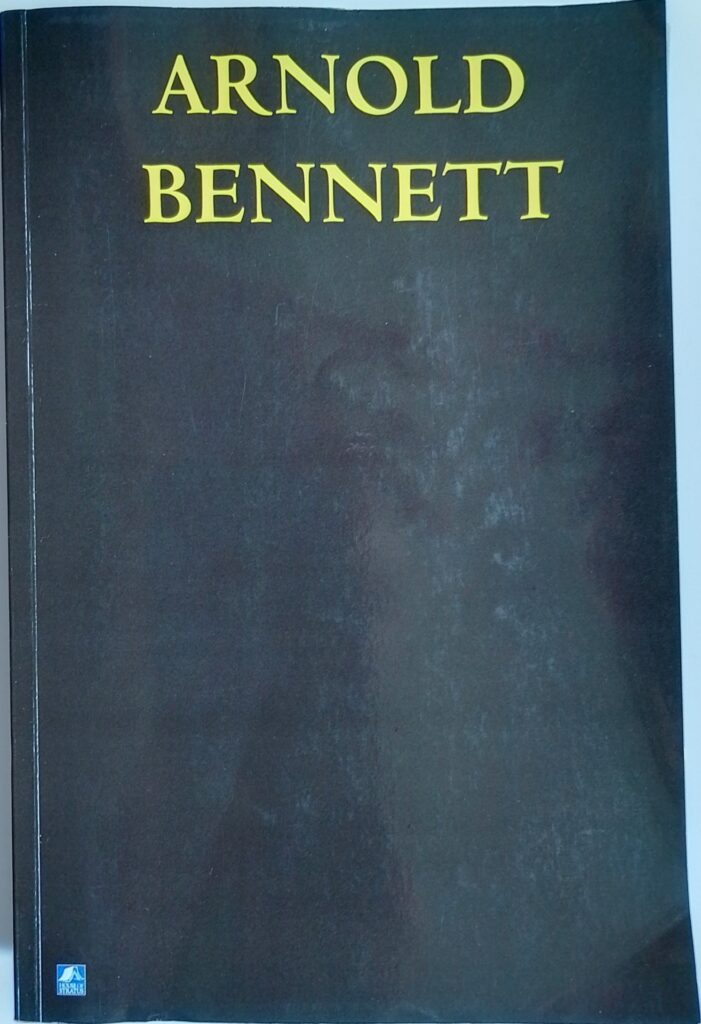First published 1910. House of Stratus, paperback, c.2003, pp 454, c. 200,000 words.
This is the first of a four-book series concerning the life of Edwin Clayhanger and his family. It is a big book, and like many of the period, particularly those of French authors such as Victor Hugo and Honoré de Balzac, it is a realist novel set in a clearly identifiable location, in this case the English Midlands, specifically The Potteries, where many of Bennett’s books are set. It starts at a leisurely pace, although not quite as slowly as Les Misérables, with a scene of teenage schoolboys returning home. This is the last day that the sixteen-year-old Edwin attends school and he has no clear idea what he will do next. He has unformed ideas about becoming an architect. Arriving home, we meet Darius, Edwin’s father, and his two sisters. The mother died sometime before, and it becomes immediately clear that Darius’s word is law amongst the household. He is a man who has worked his way up from the bottom to become a successful printer, owning his own business. Edwin is to join the firm.
While Darius brooks no opposition, Edwin is weak willed, acquiescing in his father’s plans, making for a rather unsympathetic protagonist, having little strength of character. He has more education than his father and has a fondness for poetry and reading while his father has no time for such things; his only leisure activities are centred around the pursuit of business opportunities.
Edwin’s school chum, met in the first scene, is a member of the Orgreave family whose father is a successful architect and sometimes customer of Darius. The Orgreave family is set in contrast to Edwin’s: they are lively, outgoing, interested in all the arts, and they are all free to express their own opinions and pursue their own interests. Orgreave persuades Darius to have a house built next door to the Orgreave family’s. One of the Orgreave daughters, Janet, is an intelligent and beautiful woman of around Edwin’s age. She has a friend, Hilda Lessways, who is much admired in the Orgreave household, although her manner is abrupt, verging on the rude, and she is no great beauty.
The book falls here. There seems absolutely no reason why Edwin should prefer Hilda over Janet. Yes, she is bold and opinionated, so perhaps he is drawn to her because he has been trained by his father to be compliant to an authority figure. This is ‘the comfort of prison’ [p282]. She also treats him badly which perhaps suits his doormat personality. He greatly admires qualities in the Orgreaves, such as humour and speaking lightly, that are not to be found in Hilda. [ p430]. He even admits that he is afraid of and hates Hilda and yet is unfathomably and irresistibly drawn to her [p452].
Life in the potteries at the start of the twentieth century is well evoked. We can see the landscape, the towns, the factories. We watch the people from all walks of life going about their daily tasks: work and play. The place of non-conformist religion and the politics of the times are brought to life. Most of the characters (except the central pair) are well drawn. Darius is particularly strong, and sufficient back-story is provided for us to understand the way he is.
Bennett is a fluent writer and marvellous at evoking time and place. There is a little archaic language here (‘eructions’, ‘absquatlulate’, ‘poltroonery’ (shades of Flashman in that word), ‘sneaped’, for example) but most is clear from the context or unimportant. Sadly this book largely lacks the humour of Bennett’s The Card or lively perkiness of Anna of the Five Towns. It is not a drudge to read, but it lacks a feeling of truth in the central human relationship.
This edition of the book has the most unimaginative cover in my entire library: it is completely black with only the author’s name in a dull, serif font on the cover; not even the name of the book is there. The paper used for the text is a hard white, office stationary. There is a brief foreword by John Potter.
© William John Graham, January 2023

